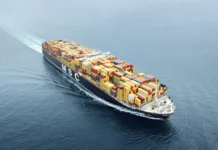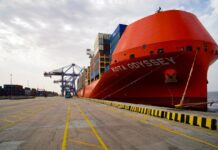
When we first envisioned the ICS Academy, we saw an opportunity to transform maritime education by creating something truly different: a platform that would harness the collective experience of more than 80% of the world’s shipping fleet and deliver it directly into the hands of seafarers.
Developed by seafarers for seafarers, our Academy provides on-the-go access to practical e-learning that helps shipping companies ensure best practices and regulatory compliance on board.
What sets our approach apart is how the Academy seamlessly complements ICS Publications, giving crew access to onboard procedures and training that work together cohesively. We designed the platform to be globally applicable to all ship types and regularly updated to meet the industry’s evolving needs, combining sophisticated technology with flexible, time-efficient learning experiences that allow the crew to study at their own pace.
From the outset, our focus has been on ensuring that the learning is practical and relevant to what seafarers do on board. We wanted to create courses where crew members could clearly see how the content relates to their lives at sea and how it helps them in their daily operations. Our first offerings, based on ICS’s best-selling publications, including ‘The Guide to Helicopter/Ship Operations’ and the ‘Engine Room Procedures Guide’, go beyond basic content delivery to offer deep dives into critical procedures.
One of our proudest achievements is the Academy’s mobile app, which enables true offline learning capabilities. We recognised that seafarers need flexibility in their learning journey – whether they’re at home, travelling to a ship, or in their cabin. The ability to download content and complete courses without an internet connection has been a game-changer for accessibility.
Innovation drives everything we do, as exemplified by our ‘Operating the Engine Under Low Loads’ course. Here, we’ve created a sophisticated 3D simulation of a two-stroke engine that allows learners to conduct virtual inspections in a safe environment. This directly addresses a growing industry challenge: as more ships reduce speeds to lower emissions, engines are increasingly operating under low-load conditions that require more frequent inspections.
Quality assurance has been paramount in our development process. Every single module goes through rigorous testing and validation by peer groups and subject matter experts. This ensures our content not only meets industry requirements but exceeds them. Looking ahead, I’m excited about the possibilities for expansion. With ICS’s expertise spanning everything from bridge procedures to GHG reduction, we see tremendous potential for growth.
The COVID-19 pandemic has accelerated the maritime industry’s shift toward digital learning solutions, validating our approach to flexible, accessible training. What truly distinguishes the ICS Academy is our unwavering focus on practical application. We’ve deliberately targeted key pain points for ships’ crews, providing them with quick, hands-on guidance they can immediately apply to their work.
Through interactive content, seafarers can apply practical recommendations to real-life scenarios, with the latest learning techniques engineered to optimise knowledge retention. We’ve created more than just a training platform – we’ve built a bridge between traditional maritime knowledge and the digital future of seafarer education.
This article was written by Guy Platten, Secretary General of the International Chamber of Shipping.





